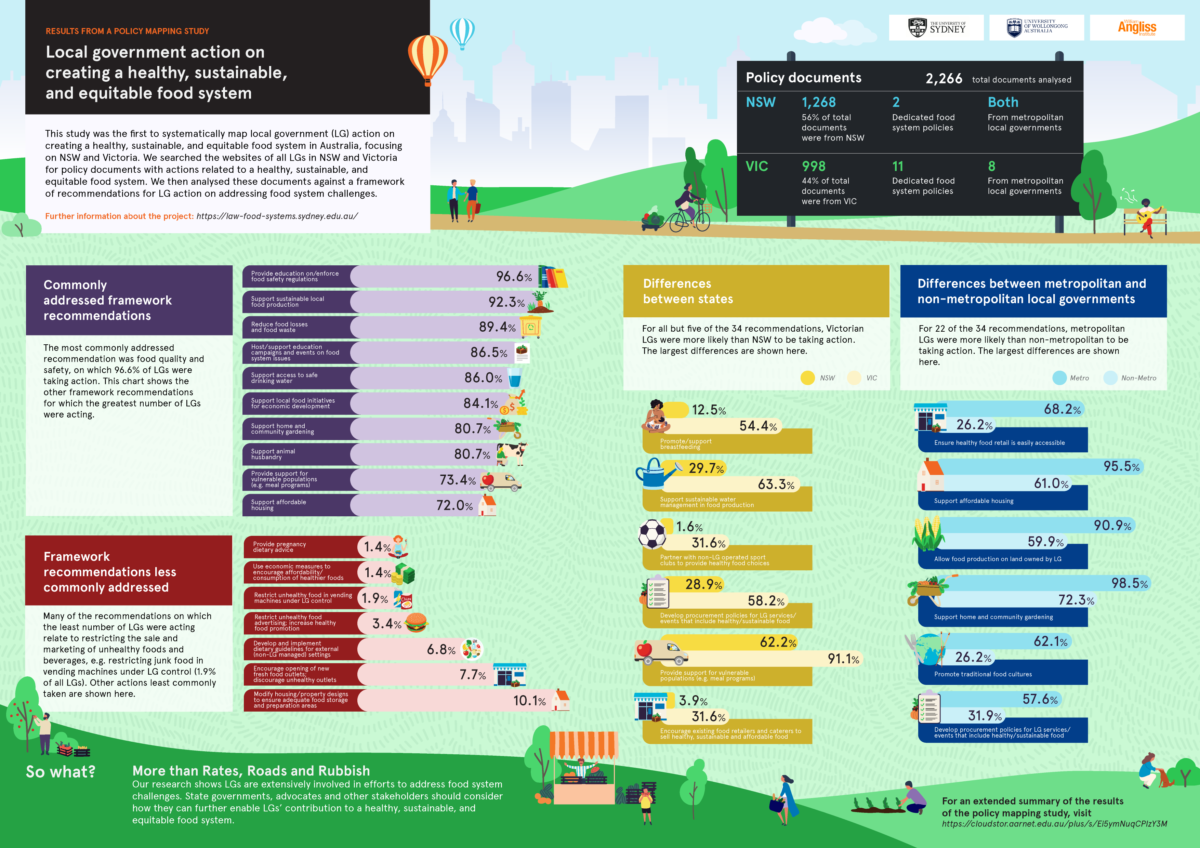Amy Carrad – this month’s Fair Food Champion – is a researcher and advocate for a more healthy, sustainable and equitable food system
Tell us a bit about yourself – what is your background and how are you involved in the local food system?
I am a researcher with a public health background, currently working on a project that is looking at how local governments and civil society (community) organisations contribute to a healthy, sustainable, and equitable food system (https://law-food-systems.sydney.edu.au/). Next, I am a compulsive exerciser. After that, I’m a passionate home cook, volunteer at Green Connect’s farm in Warrawong, avid environmental and sustainability warrior, and cycling advocate.
Tell us about your research project – what is it about and what have you achieved so far?
Local governments are often thought of as being responsible for only the three Rs – Roads, Rates and Rubbish – but even a cursory glance at the website of any local government will tell you that they do a lot more. Our project is looking at how local governments in NSW and Victoria address food systems from a policy perspective. We’re also interested in finding out how civil society (or non-government) organisations are involved in food system ‘governance’ (governance is a term that refers to the official structures and policies that determine a certain topic).
We will use this information to identify pathways to strengthen food system governance at the local level, including through an integrated set of recommendations for policy and legislative change that would enable local governments and community groups to do what they do, bigger and better.
The part of the project (1 of 4) that we have completed at this stage involved identifying policy documents that related to food system issues for all 207 local governments in NSW and Victoria, and then analysing the content against a set of recommended actions that local governments could be taking in this space. This process took a long time! Two years since we started, we have formally presented the main findings of this research. Our handy infographic summarises the key findings.

What are the key takeaways from your research?
- Local governments most commonly undertake activities for which they have specified obligations under respective state-level legislation. The most obvious example of this is regulating and monitoring food safety requirements at restaurants and other food businesses.
- Conversely, local governments are least likely to be taking action on areas they don’t have an explicit mandate for from the state level.
- Victorian local governments are generally streets ahead of NSW. They are more likely to have a dedicated food system strategy (a single document that contains a comprehensive and integrated set of actions spanning across all segments of the food system). For most of the recommended action areas that we assessed policies against, Victorian local governments were more likely to have a policy document/actions compared with NSW. We speculate this is largely due to support from the Victorian state government for issues related to health and wellbeing, and climate change – NSW does not have this support.
- Metropolitan local governments are more likely than non-metropolitan (regional and rural) local governments to have a dedicated food system strategy, and also more likely to have a policy document/actions for most of the recommended action areas.
Where can people find out more?
If you’re interested in reading more, keep an eye on our project website – we will upload information about accessing an academic research paper when it is published, and also a “plain language” summary report.

What can we do to help you with or to support your work?
What supporters of Food Fairness Illawarra can do is take the findings of the research project to demand a fairer food future for our pocket of the world. Do this by getting on Wollongong Council’s (or Shellharbour or Kiama if you live there) case about lifting their game in genuinely implementing a range of actions that will contribute to a food system that is beneficial for our personal health, community wellbeing and environmental sustainability. Your voice as a community member is what Councils listen to when they are informing their strategic direction and policy documents (the central one is the Community Strategic Plan). If we don’t demand that we want a better local, fair food system, then that won’t even be on the drawing board when Council is discussing their plans for the future. Our future.
If you’re in the research world (or get excited about reading academic research papers), keep an eye on our project website for an announcement when the paper reporting on the results of the policy mapping study is published. If you are involved in local government, read our report that we wrote with you as the intended audience (this will be available on our website soon) AND start internal discussions within Council about developing and adopting a food system strategy.
If we don’t demand that we want a better local, fair food system, then that won’t be on the drawing board when Council is dicussing their plans for the future. Our future.
Amy Carrad
Is there anything else you would like to add?
You don’t need to be an “expert” in this space to comment. We are all eaters. If you’re reading this, you clearly care about FAIR FOOD and being a conscious eater. That means you’ve considered the issues enough to be able to write to Council. Seize every opportunity you can to give feedback, such as the updating process for the Community Strategic Plan




